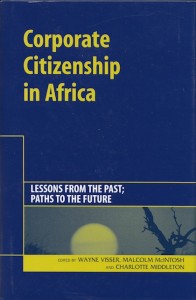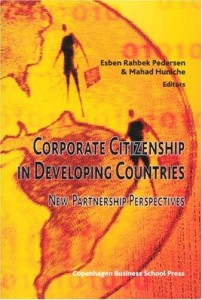Cassava flour company C:AVA has valuable insight from five years’ experience spreading sustainable technology in Africa
To understand the potential impact of sustainable technologies and why their adoption is often difficult, especially in developing countries, it is helpful to examine a specific case study.
C:AVA, the Cassava: Adding Value for Africa Project, promotes the production of High Quality Cassava Flour (HQCF) as an alternative for starch and other imported materials such as wheat flour. C:AVA has developed value chains for HQCF in Ghana, Tanzania, Uganda, Nigeria and Malawi aiming to improve the livelihoods and incomes of at least 90,000 smallholder households, including women and disadvantaged groups.
The main opportunity for technology to make a difference is in the drying process. A flash dryer dries cassava mash very quickly, preventing fermentation. The flash dryers that were available in Nigeria before C:AVA’s intervention were run on used motor oil or diesel and tended to be highly fuel inefficient and costly.
C:AVA – led by the Natural Resources Institute of the University of Greenwich, working with the Federal University of Agriculture Abeokuta, and the Bill and Melinda Gates Foundation – evaluated the traditional flash dryers in 2009. Since then, they have introduced more efficient technology (double cyclone flash dryers). These involve heat exchange systems – using “waste” heat from one part of the process to feed into another part – better insulation and faster drying speeds. The efficiencies have increased the diesel fuel to flour production ratio by an 18 factor improvement according to C:AVA tests, reducing costs and CO2 emissions.
However, these achievements have not been easy. Over the last five years, C:AVA has learned 10 crucial lessons about the successful diffusion of more sustainable technologies in Africa:
1. Capacity building
A critical part of the technology transfer process was that C:AVA mentored a Nigerian fabricator to produce a flash dryer that meets international standards. As a result, new engineering knowledge and skills are being developed and embedded locally.
2. Regional trade and infrastructure
C:AVA organised experience sharing visits between cassava stakeholders in western and eastern Africa. Transporting a flash dryer from Nigeria to Malawi revealed significant constraints to technology transfer in the region due to poor transport infrastructure and high transaction costs (bureaucratic red tape).
3. Value chain fluctuations
Technology can improve one part of the value chain, but changes in other parts can neutralise these benefits. For example, prices of fresh cassava roots can vary by more than 300% in one season. So C:AVA is also working with others to ensure that farmers obtain higher yield per unit area of cassava.
4. Macro trends
It is critical to monitor how changes in the macro environment could impact the technology investment. In Malawi, C:AVA identified large markets for HQCF and organised raw materials in anticipation of the introduction of artificial drying. But due to a drought, cassava suddenly became a major primary food in a predominantly maize consuming nation, resulting in a raw materials shortage.
5. Working with investors
The new dryers required investors willing to make an investment of $200,000 (£120,600). This difficulty was overcome by addressing the fuel inefficiency of the traditional flash dryers, and working with potential investors on their business plans, identifying market opportunities and raw materials supply.
6. Finance dependent delays
For C:AVA, almost all project targets that were dependent on private investor decision making have been off-course. Technology projects need to include or seek guidance from private sector partners in determining their expectations and fixing their decision-making timelines within project cycles.
7. Expectations management
The perception that technology interventions will bring financial or tangible hand-outs can lead to disappointment and even hostility from potential beneficiaries when these expectations are not met. This can be exacerbated by development agencies providing short-term donations.
8. Policy support
C:AVA benefitted from a favourable government policy environment in Nigeria, particularly in the period between 2002 and 2007 when the Presidential Initiative on Cassava was in operation. Currently, the Cassava Transformation Programme of the federal government provides another favourable environment to promote the technology.
9. Private sector partners
One of the big lessons from C:AVA was that their set of collaborative partnerships, although well balanced in other respects, lacked private sector representation. As a result, when it came to getting access to capital, the technology adoption time was considerably delayed.
10. Spreading the benefits
To scale the positive impact, there are plans for spreading the more efficient flash dryer technology through south-south investments, (between developing countries). To this end, the Gates Foundation has funded demonstration projects in four additional countries, including Malawi, Ghana, Tanzania and Uganda.
With thanks to Richard Coles and Christopher Thorpe from Emagine and the University of Greenwich C:AVA team for the interviews and/or the information they provided.
[button size=”small” color=”blue” new_window=”false” link=”http://www.waynevisser.com/books/the-quest-for-sustainable-business”]Link[/button] The Quest for Sustainable Business (book)
[button size=”small” color=”blue” new_window=”false” link=”http://www.kaleidoscopefutures.com”]Link[/button] Kaleidoscope Futures (website)
[button size=”small” color=”blue” new_window=”false” link=”http://www.csrinternational.org”]Link[/button] CSR International (website)
Visser, W. (2014) Sustainable tech in Africa: 10 lessons from a cassava company. The Guardian, 26 August 2014.
 This creative collection, now in its 5th edition, brings together Africa poems by Wayne Visser, including the ever popular “I Am An African”, as well as old favourites like “Women of Africa”, “I Know A Place in Africa”, “Prayer for Africa” and “African Dream”. The anthology celebrates the luminous continent and its rainbow people. The updated 5th Edition includes new poems like “Africa Untamed” and “Land of the Sun”. Buy the paper book / Buy the e-book.
This creative collection, now in its 5th edition, brings together Africa poems by Wayne Visser, including the ever popular “I Am An African”, as well as old favourites like “Women of Africa”, “I Know A Place in Africa”, “Prayer for Africa” and “African Dream”. The anthology celebrates the luminous continent and its rainbow people. The updated 5th Edition includes new poems like “Africa Untamed” and “Land of the Sun”. Buy the paper book / Buy the e-book.






